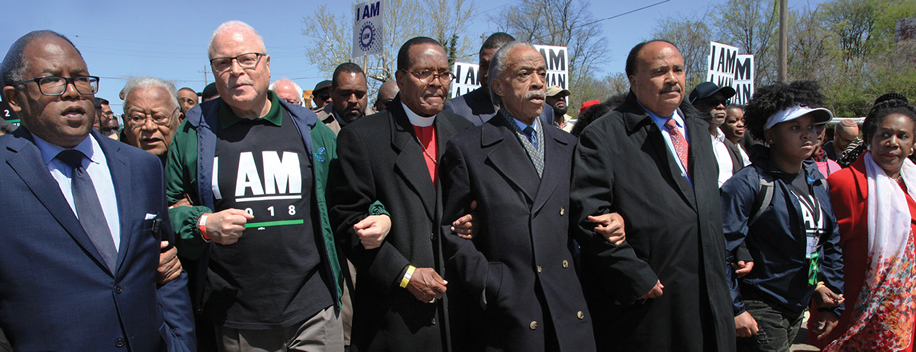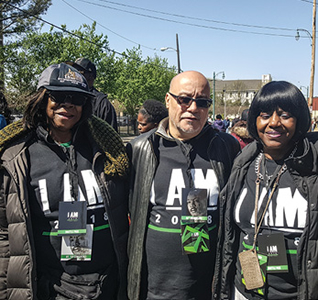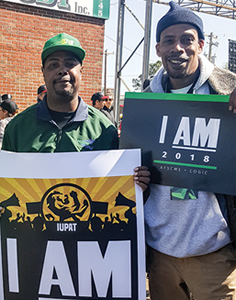Public Employee Press
Memphis Commemoration
MLK and the 1968 sanitation strike
By GREGORY N. HEIRES

A contingent of DC 37 leaders and members traveled to Memphis, Tenn., for a week-long commemoration of the 50th anniversary of the assassination of Dr. Martin Luther King Jr. and the strike by sanitation workers in 1968.

The remembrance — part of AFSCME’s I AM 2018 campaign for social and economic justice — occurred during the first week of April.
“The Memphis events pointed to the issues that joined King and the union 50 years ago to our continuing struggle today for civil and worker rights,” DC 37 Executive Director Henry Garrido said.
The message of a demonstration was that the fight for economic justice and civil rights continues 50 years after Dr. Martin Luther King Jr.’s death and the 1968 strike by sanitation workers represented by the American Federation of State, County and Municipal Employees, DC 37’s national union. Workshops and activities included youth training, rallies and demonstrations, and discussions about the significance of the strike by the largely African American sanitation workers.

In the historic “Mountaintop” speech, King spoke prophetically on the day before his assassination about the possibility of being killed for his civil rights and economic justice work.
“We’ve got some difficult days ahead,” King said in the speech. “But it really doesn’t matter with me now, because I’ve been to the mountaintop…And I’ve seen the Promised Land. I may not get there with you. But I want you to know tonight, that we, as a people, will get to the Promised Land.”
AFSCME President Lee Saunders was one of the speakers at the commemoration.
“Dr. King’s work — our work — isn’t done,” Saunders said. “We must still struggle; we must still sacrifice. We must still educate and organize and mobilize. That’s why we’re here in Memphis. Not just to honor our history, but to seize our future.”


